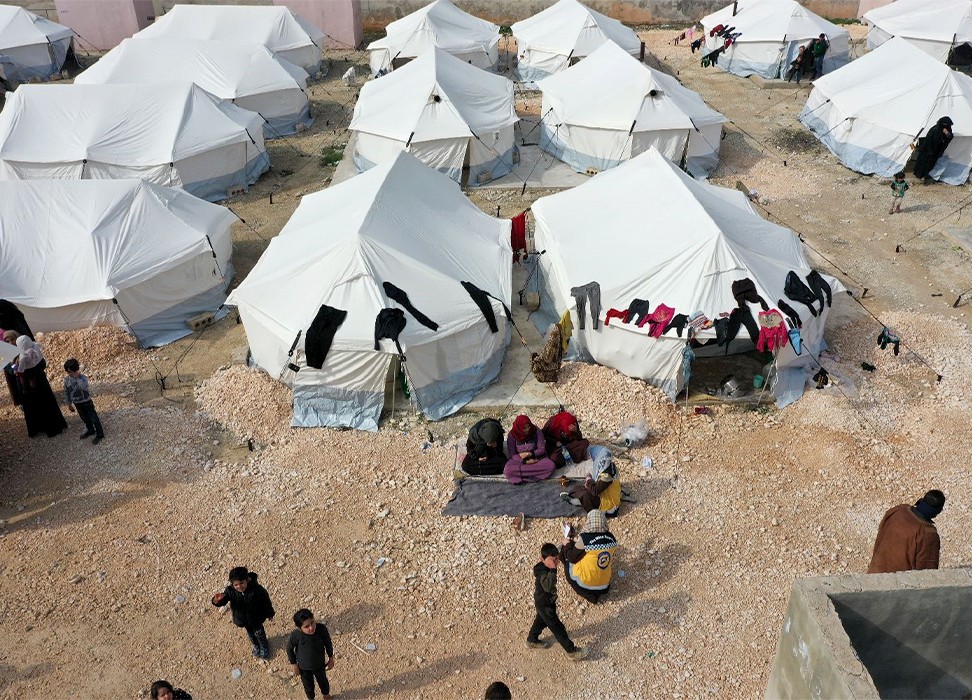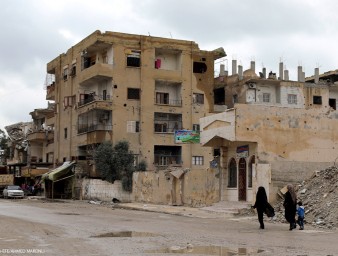Protecting human rights in humanitarian crises: the Syria earthquake
29 October 2024

When devastating earthquakes hit southern and central Türkiye and northwestern Syria in February 2023, UN Human Rights was quick to deploy additional human rights advisors as part of the humanitarian response.
A team of Arabic-speaking human rights officers went to the Turkish city of Gaziantep tasked with identifying protection gaps and making sure that vulnerable communities were not left behind in the post-earthquake emergency response.
“Integrating a human rights dimension into a humanitarian intervention is crucial,” said Amina Abu Safa, a UN Human Rights officer who was deployed to support the human rights advisor.
“If not adequately addressed, the impact on the people affected can create further suffering and injustices that aggravate vulnerabilities and humanitarian needs and make the crisis worse,” she said.
Humanitarian crises, such as conflicts, earthquakes and other natural disasters, often result in human rights concerns. UN Human Rights works to make sure that the protection of human rights is part of the greater humanitarian response, advising senior humanitarian leadership and helping design assistance proposals, explained Said Almadhoun, a Human Rights Officer with the Emergency Response Section at the Humanitarian Action Unit.
Abu Safa said the humanitarian crisis caused by the earthquakes exacerbated an already dire human rights situation in Syria, where a 13-year-long conflict has killed hundreds of thousands of civilians and displaced millions.
The earthquakes razed entire communities and left hundreds of thousands of people, including women, children and older persons, with no access to shelter, food, potable water, heat and medical care in freezing cold temperatures.
During the humanitarian response, it was critical to ensure the response was inclusive and included a human rights-based approach, Abu Safa said, integrating a focus on gender and people with disabilities, among other groups.
The activities included field missions to meet affected minorities, consultations with UN partners and civil society organizations, and strategic collaboration with several humanitarian actors.
The Office also regularly met with Syrian human rights and humanitarian organizations members of its Gaziantep-based Human Rights Reference Group (HRRG) to exchange information and learn about protection concerns as well as challenges faced by the human rights and humanitarian community.
Embedding human rights
The presence of the Office in Gaziantep played a key role in embedding human rights norms and principles in the humanitarian response.
“The advisors’ expertise helped shape humanitarian strategies and operations, including efforts to ensure women’s rights, the rights to health, water and sanitation, food, housing and education and to protect the rights of children, missing persons, persons with disabilities, rights defenders and vulnerable groups,” said Abdelaziz Abdelaziz, Officer in Charge at Human Rights Syria.
Since 2015, the Office has supported the “whole of Syria” UN-led humanitarian response. The Office’s human rights advisers have been providing support to the leadership of the humanitarian response in each of the three hubs: Damascus, Amman and Gaziantep.
Set up in 2013, UN Human Rights in Syria monitors and reports on violations of international human rights and humanitarian law in Syria, shedding light on protection, displacement, healthcare, shelter, and vulnerable populations.
Almadhoun and Abu Safa said the UN Human Rights’ work during the emergency response to the earthquakes will have lasting impact, as it also allowed the Office to establish a foundation in its efforts to promote and protect human rights in northwestern Syria. The Office does not have a presence in Syria.
“Working hand in hand with humanitarian actors in Gaziantep in the aftermath of the earthquakes and obtaining first-hand information on human rights was one of the added value outcomes of this initiative,” Abu Safa said. “We were able to do this thanks to the Human Rights reference Group, a structure we created by bringing together human rights and humanitarian actors in Gaziantep.”



